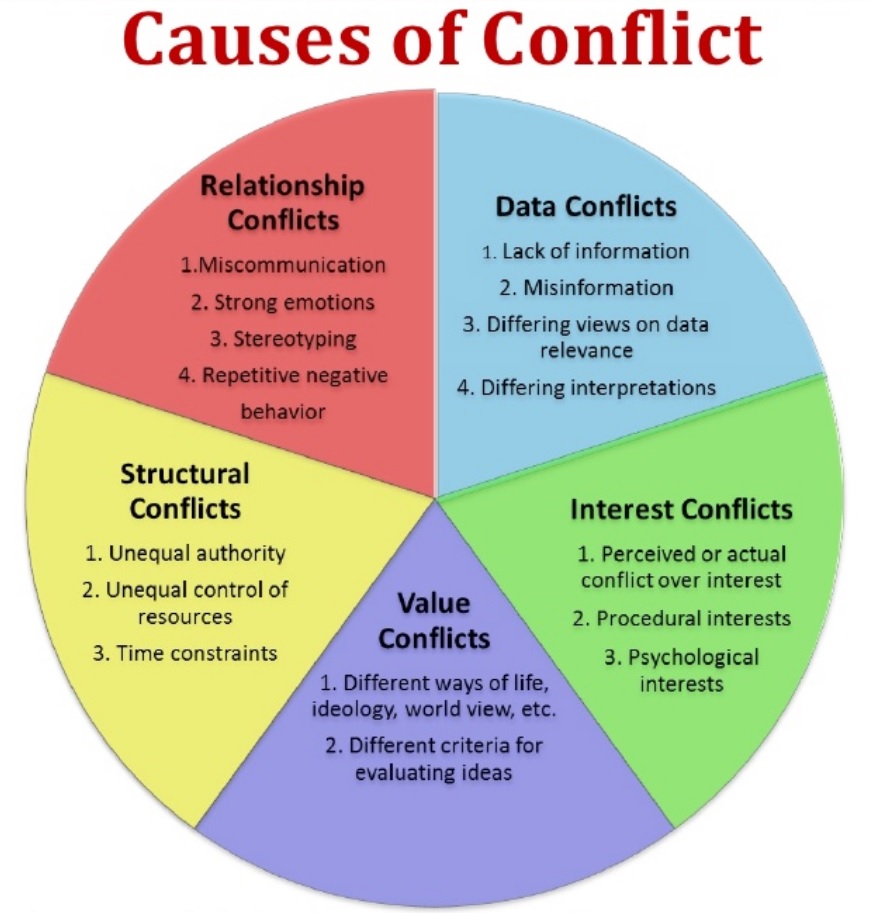Handle conflict
Try to agree
Conflict is natural and happens in every ongoing relationship. Since conflict is unavoidable we must learn to manage it. Conflict is a sign of a need for change and an opportunity for growth, new understanding, and improved communication. Conflict can not be resolved unless it is addressed with the appropriate individual(s).
Causes of conflict are conflicting resources, conflicting styles, conflicting perceptions, conflicting goals, conflicting pressures, conflicting roles, different personal values, and unpredictable policies.

Handle the conflict
Be a calming agent. Regardless of whether you are being a sounding board for a friend or you are dealing with your conflict, your response to the conflict can escalate or decrease the intensity of the problem. To be calming, provide an objective or neutral point of view. Help plan how you are going to work with the other party to achieve resolution.
Listen actively. Work through how you feel, what the specific problem is, and what impact it is having on you.

Specific steps to be taken in solving the conflict:
- Think it over. Honestly assess the situation. Think about what the real problem is in the relationship and what your contribution might be.
- Consult others. Get a range of perspectives from people you respect and trust.
- Prepare to talk with your confidant. Figure out what you want to say and how to say it. Don’t blame others. Instead, say what’s not working for you and take responsibility for your part in the conflict. When we don’t deal with these conflicts, they can fester and become worse than they need to be.
- Document your concerns. Keep a paper trail. Ideally, those notes should be factual statements—who did or said what, on which dates—without negative attributions, or blame. Factual notes make you look more reasonable and not unduly influenced by heightened emotions, especially anger. Keeping such records, which can also include e-mail exchanges, can help you remember key details that would otherwise be easy to forget. Documentation will be vital if you ever have to file a formal complaint.
- Use grace. Sometimes, a light touch is all that’s needed. If your opponent is slow to respond to your request for a meeting, for instance, show up with two cups of coffee and a smile and ask when you might meet. In fact, 90 percent of conflicts can be handled quickly, immediately, and informally, without having to resort to more radical measures.
- Follow up. If you didn’t air everything you wanted to on the first round, ask for another meeting. These discussions can be stressful, and you may have forgotten relevant points. New solutions may also emerge once you have cooled off.
- Don’t put it off. While you might hesitate to tackle a conflict for fear of repercussions, in general, take the risk.
–




